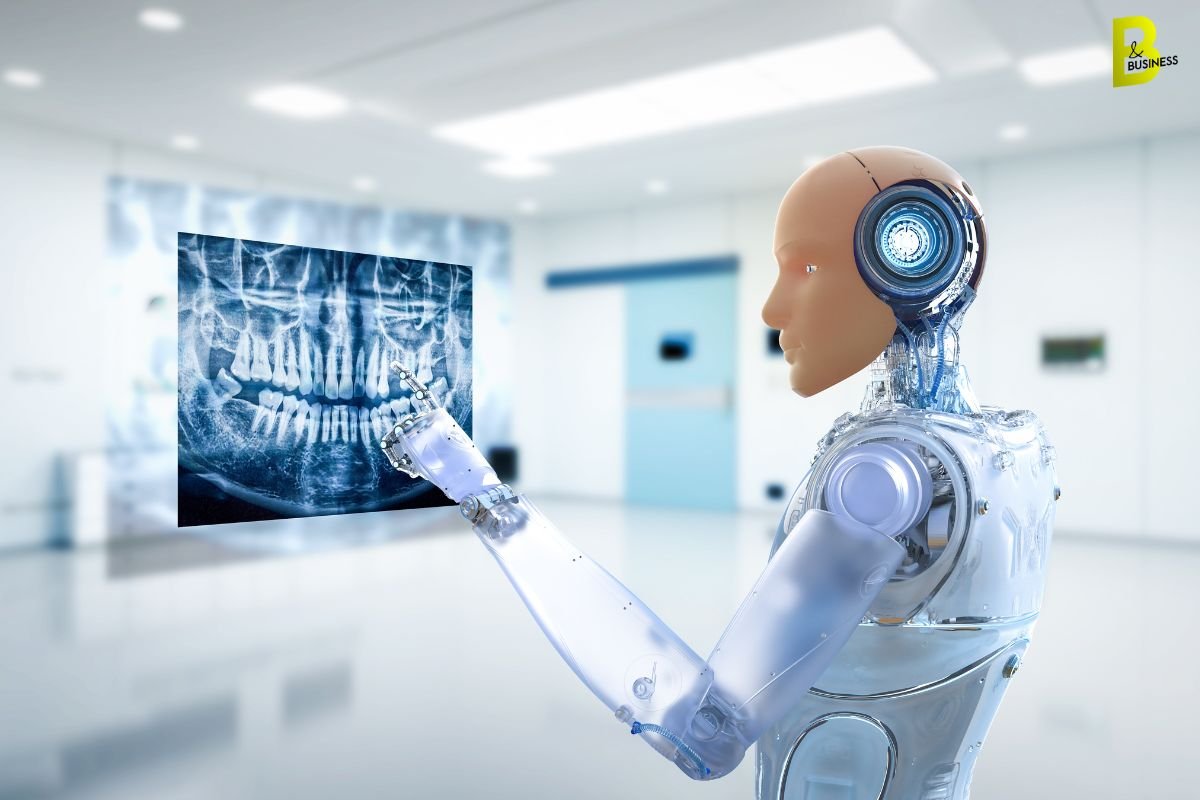Introduction
Artificial Intelligence (AI) is revolutionizing various industries, and there is no exception. AI-powered healthcare leverages machine learning algorithms, natural language processing, and other advanced technologies to enhance medical services, improve patient outcomes, and optimize operational efficiencies. This article explores the benefits and challenges of AI-powered healthcare, providing a comprehensive understanding of its potential and the obstacles it faces.
Benefits of AI-Powered Healthcare
Improved Diagnostic Accuracy
AI has shown remarkable potential in improving diagnostic accuracy. Machine learning algorithms can analyze vast amounts of medical data, including images, lab results, and patient histories, to identify patterns and predict diseases with high precision. For instance, AI-powered imaging tools have demonstrated superior accuracy in detecting conditions like cancer, cardiovascular diseases, and neurological disorders compared to traditional methods.
Personalized Treatment Plans
AI enables the creation of personalized treatment plans by analyzing individual patient data. By considering genetic information, lifestyle factors, and previous medical history, AI systems can recommend tailored treatments that are more effective for each patient. This personalized approach not only enhances treatment outcomes but also reduces the risk of adverse effects.
Enhanced Patient Monitoring
AI-powered healthcare systems facilitate continuous patient monitoring, enabling early detection of potential health issues. Wearable devices and remote monitoring tools equipped with AI algorithms can track vital signs, detect anomalies, and alert healthcare providers in real time. This proactive approach helps in preventing complications and ensures timely interventions.
Operational Efficiency
AI can significantly improve the operational efficiency of healthcare facilities. From optimizing staff schedules to managing inventory and streamlining administrative tasks, AI-powered systems can handle various operational aspects, freeing up valuable time for healthcare professionals to focus on patient care. Additionally, AI-driven predictive analytics can forecast patient admissions and resource requirements, enabling better resource allocation.
Drug Discovery and Development
AI is transforming the field of drug discovery and development. Machine learning algorithms can analyze vast datasets to identify potential drug candidates, predict their efficacy, and optimize clinical trials. This accelerates the drug development process, reduces costs, and increases the chances of successful outcomes. For example, AI was instrumental in the rapid development of COVID-19 vaccines, significantly shortening the time from discovery to deployment.
Reduced Healthcare Costs
AI-powered healthcare can contribute to reducing overall healthcare costs. By improving diagnostic accuracy, personalizing treatments, and enhancing operational efficiency, AI can minimize unnecessary tests, treatments, and hospital admissions. This not only benefits patients by reducing their financial burden but also helps healthcare systems allocate resources more effectively.
Improved Patient Engagement and Education of AI-Powered Healthcare
AI-powered chatbots and virtual health assistants are transforming patient engagement and education. These tools can provide patients with instant access to medical information, answer queries, and offer personalized health advice. By empowering patients with knowledge and support, AI-driven solutions encourage proactive health management and adherence to treatment plans.
Predictive Analytics for Preventive Care
AI’s predictive analytics capabilities enable healthcare providers to identify individuals at risk of developing certain conditions and implement preventive measures. For instance, AI algorithms can analyze patient data to predict the likelihood of chronic diseases such as diabetes or heart disease. This allows healthcare providers to intervene early, promoting preventive care and reducing the incidence of serious health issues.
Enhanced Medical Research
AI is revolutionizing medical research by enabling the analysis of large datasets and accelerating the discovery of new insights. Machine learning algorithms can identify correlations and patterns in medical data that may not be apparent to human researchers. This can lead to breakthroughs in understanding diseases, developing new treatments, and improving overall healthcare outcomes.
Challenges of AI-Powered Healthcare
Data Privacy and Security
One of the primary challenges of AI-powered healthcare is ensuring data privacy and security. Healthcare data is highly sensitive, and any breach can have severe consequences. Implementing robust encryption, secure data storage, and strict access controls are essential to protect patient information from cyber threats and unauthorized access. Moreover, compliance with regulations such as the Health Insurance Portability and Accountability Act (HIPAA) is crucial to maintain patient trust.
Integration with Existing Systems
Integrating AI solutions with existing healthcare systems can be complex and challenging. Legacy systems may lack compatibility with new technologies, leading to difficulties in data sharing and workflow integration. Overcoming these integration hurdles requires significant investment in infrastructure, staff training, and collaboration between technology providers and healthcare organizations.
Ethical and Legal Considerations
The use of AI in healthcare raises several ethical and legal considerations. Issues such as algorithmic bias, transparency, and accountability need to be addressed to ensure fair and equitable use of AI technologies. Developing guidelines and standards for AI implementation, along with robust regulatory frameworks, is essential to address these concerns and safeguard patient rights.
Reliability and Accuracy of AI Algorithms
While AI has demonstrated impressive capabilities, ensuring the reliability and accuracy of AI algorithms remains a challenge. Bias in training data, limitations in algorithm design, and variability in real-world scenarios can affect the performance of AI systems. Rigorous testing, validation, and continuous monitoring are necessary to ensure that AI algorithms deliver consistent and reliable results.
Workforce Adaptation and Training
The integration of AI in healthcare requires a workforce that is adept at using these technologies. Healthcare professionals need to be trained to understand and interpret AI-driven insights, integrate AI tools into their workflows, and make informed decisions based on AI recommendations. Developing comprehensive training programs and fostering a culture of continuous learning are essential to maximize the benefits of AI in healthcare.
Cost of Implementation
The cost of implementing AI-powered solutions can be a significant barrier for healthcare organizations, especially smaller practices and clinics. Investing in AI infrastructure, acquiring and maintaining advanced technologies, and training staff require substantial financial resources. Ensuring equitable access to AI technologies across diverse healthcare settings is crucial to prevent disparities in healthcare delivery.
Managing Expectations
While AI has immense potential, it is important to manage expectations regarding its capabilities. Overhyping AI technologies can lead to unrealistic expectations and disappointment if outcomes do not match expectations. Clear communication about the limitations and potential of AI is necessary to ensure realistic expectations and foster trust in AI-driven healthcare solutions.
Continuous Monitoring and Evaluation
AI systems require continuous monitoring and evaluation to ensure their effectiveness and safety. Regular audits, performance assessments, and updates are necessary to address any issues, improve algorithms, and adapt to evolving healthcare needs. Establishing robust monitoring frameworks and involving interdisciplinary teams in the evaluation process is essential for maintaining the quality and reliability of AI-powered healthcare.
Conclusion
AI-powered healthcare offers a multitude of benefits, from improved diagnostic accuracy and personalized treatment plans to enhanced patient engagement and operational efficiency. However, realizing the full potential of AI in healthcare requires addressing several challenges, including data privacy and security, integration with existing systems, ethical considerations, and workforce adaptation.
By navigating these challenges and leveraging the strengths of AI, the healthcare industry can usher in a new era of patient-centered care, improved outcomes, and cost-effective solutions. As technology continues to evolve, collaboration between healthcare providers, technology developers, regulators, and policymakers will be essential to ensure the responsible and equitable implementation of AI-powered healthcare solutions.









